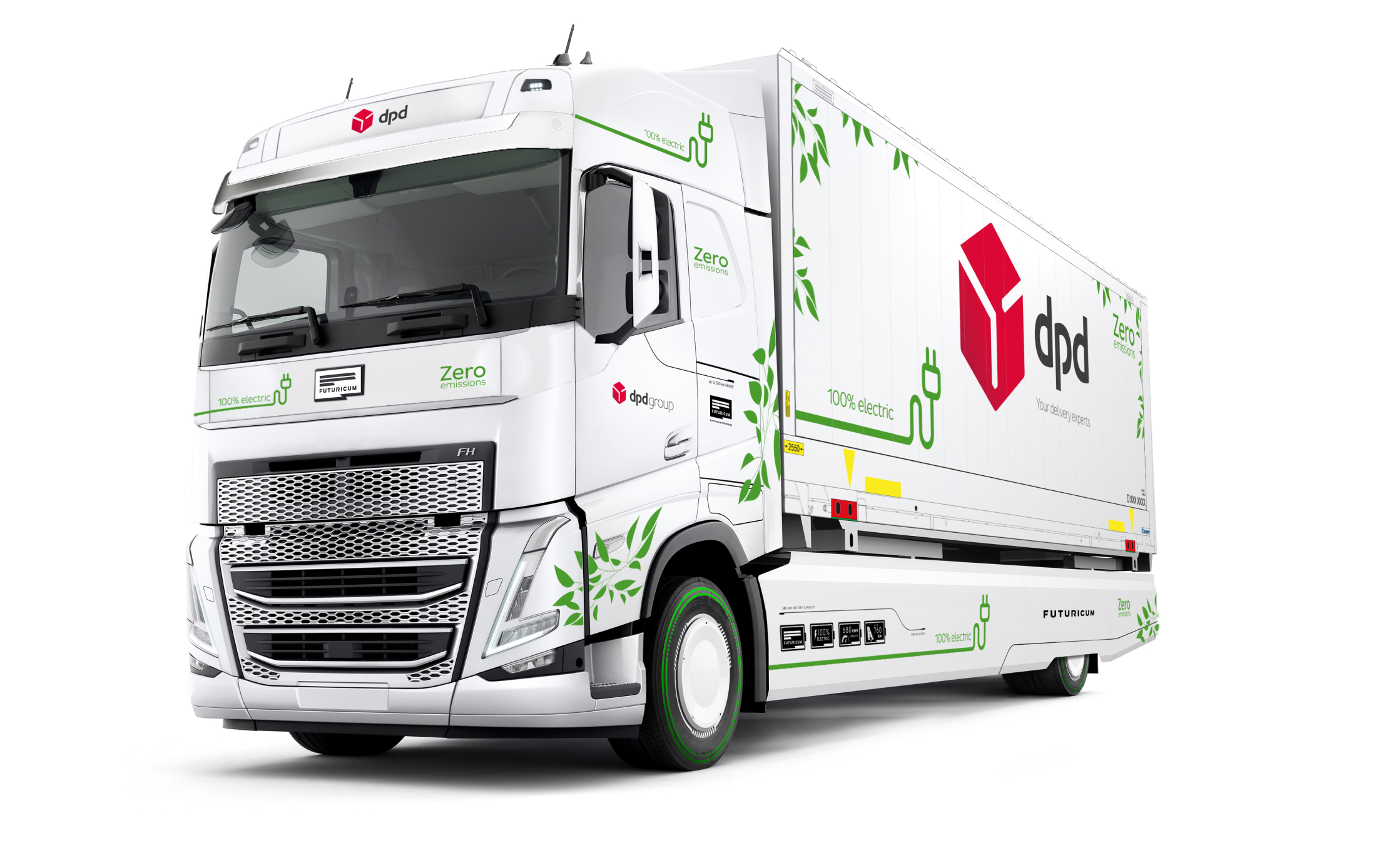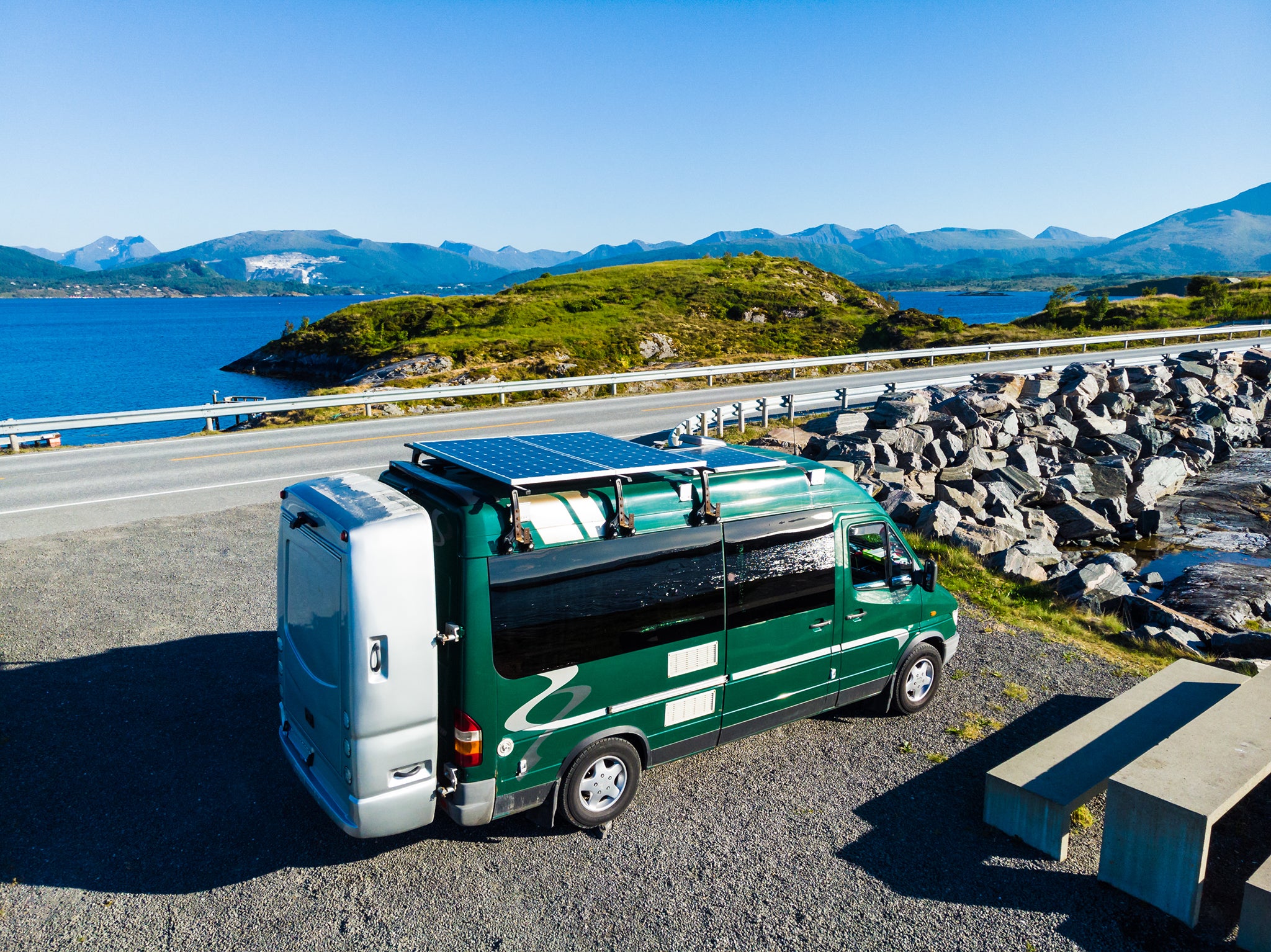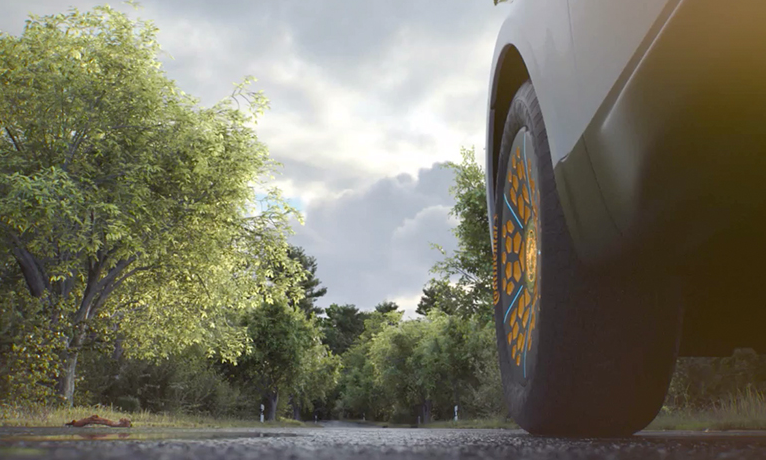
# Future mobility
Vanlife - modern vehicles for connected camping
Mobile homes designed for working life on the road

You’ve heard of the young family spending their parental leave camping across Australia in a retro camper. You know about the freelancers who drive from job to job in a motorhome or trailer, living and working wherever assignments take them. Most importantly, you’ve seen the Instagram posts, showing shiny, happy people living life on the road, 365 days a year.
With digital nomads and influencers increasingly embracing #vanlife, camping is rapidly getting a 21st-century upgrade. Living in an RV (Recreational Vehicle) or trailer is an aspirational lifestyle for anyone who enjoys slow travel, wants to go off the beaten path and can work from anywhere. As the traditional image of camping receives a revamp, so do the modular homes on four wheels that enable a modern, smart and connected life on the go.
Take a look at the high-tech camping gear and smart technology behind the sliding doors of today’s mobile homes.
Connected Vanlife in networked mobile homes
Today’s office workers call any place they can set up their laptop an office. These digital nomads have fueled the popularity of 21st century mobile home ownership – and the #vanlife hashtag. To work from anywhere in the world, their only must-have is a reliable data connection.
Whether through a portable hotspot or an external router with its own SIM, a mobile home’s internet connection is the lifeline connecting it to the rest of the world. For trips to areas with poor reception, a signal booster or even a satellite communicator is worth investing in.
However, a networked camper with high-tech gear provides so much more than just a Wi-Fi hotspot. A modern RV is like a smart home on wheels, with everything from the temperature and lights to battery, water and gas levels controlled through an app. The most advanced systems even allow hands-free, voice-controlled optimization of the interior gadgets. Even the security gadgets in today’s mobile homes are connected, setting up a geofence around the vehicle and sending an alert to the owner’s phone in case of a break-in.

Off-grid technologies for a civilized life in the great outdoors
It takes a lot of gadgets to stay connected while going off-grid. Campers who truly want to unplug need to provide all their own utilities before setting off on a camping trip away from mobile home parks or campsites. Self-sufficiency is the key that unlocks the road less traveled, so solar panels, a water tank and heat are must-haves. Obviously, mobile nomads need power to charge all their gadgets and keep the camping office running – and solar-powered supply, combined with energy-saving appliances, is the eco-friendliest way to keep the power on, even in the great outdoors.

Tires that keep mobile homes rolling
Tires are one of the most important parts of any car, and that is especially true for RV wheels and tires. Not only do mobile homes travel longer distances than the average car, they often encounter more varying road (and off-road) conditions or extreme weather. To minimize the need for repairs and risk of breakdowns in remote locations, they should be extremely reliable.

Complement your high-tech camping gear with high-end tires, paying attention to the following:
- Buy the right size of tire for your camper. Find out how to check the tire size here.
- Buy the right type of tire for your camper. What type of roads will you be travelling on and in which weather? Continental offers summer, winter and all-season van tires, with a wide variety of treads and rubber compounds to suit different heavy and lightweight, large and small campers and travel trailers.
- Pay attention to the weight rating of your RV. Keep in mind that an overloaded vehicle will exceed the recommended weight, placing undue strain on your tires.
- Protect mobile home tires from heat, cold and the sun with tire covers.
- Check the tire pressure of your RV tires before each trip, plus every day while on the road and at least once a month when your camper is parked. The correct tire pressure isn’t just a safety issue, but also an energy-saving measure that can increase mileage.
High-tech for intelligent RVS
Of course, modern campers don’t want to put any old tires on their smart, high-tech mobile homes. Thankfully, Continental offers high-end connected tires in keeping with the gadgets on board. The following innovative technologies were designed to provide an even smoother ride for those who live and work on the road:

- A flat tire is unpleasant in any scenario, even more so when travelling in a heavy motorhome, far from the nearest garage. ContiSeal is designed to reduce the impact of punctures, sealing smaller tread damage and making roadside tire changes or towing unnecessary. Just like a first aid kit for RV tires.
- You don’t want to ruin the serenity of the great outdoors with the noise of your own RV. ContiSilent is technology developed by Continental to reduce interior noise, so the journey to your next camping trip is as chilled as the timeout in nature.
That’s not all the high-tech gear Continental has in store for campers. Some even more advanced designs are currently being developed to make future camping trips more comfortable:
- ContiSense uses intelligent sensors, integrated throughout electrically conductive rubber compounds, to monitor road conditions, measure tire pressure, temperature and tread depth. It can even detect punctures and instantly send an alert to the vehicle.
- PressureProof and PressureBoost technology maintains optimal tire pressure by monitoring, storing excess compressed air and re-inject it when needed. Not only will this technology make RV travel safer and more economical, it also saves campers the hassle of manually checking and adjusting tire pressure.
